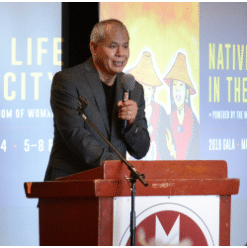Folks, let’s start this conversation by yelling “All hands on deck!” On November 9, of this year, deep pocketed special interest groups will be seeking to dismantle what is known as the Indian Child Welfare Act of 1978 through the Supreme Court. Beginning in 2018, ICWA has been litigated on multiple federal court levels. A federal district court in Texas held that ICWA violated the U.S. Constitution in an unprecedented decision. In August of 2019, this case was successfully appealed and reversed by a three-judge panel from the Fifth Circuit. Then, in November 2019, the Fifth Circuit agreed to conduct what is known as an “en banc” review of the three-judge panel’s decision. In an en banc review, complex cases of broad legal significance are reconsidered by the entire circuit court. In April 2021, the en banc panel found certain sections of ICWA to be unconstitutional. The Supreme Court granted petitions to hear the case in February 2022. It must be pointed out that recently, the US Supreme Court has become more conservative and has shown no hesitation toward activist rulings.
The primary intent of ICWA is to protect Native kids by ensuring that they are not removed from their families unless doing so is necessary for the child’s safety. Historically and tragically, unjustified removals of Indian children from their families prompted US Congress to enact the ICWA into law by reducing risks to Indian children nation-wide needlessly being separated from their families. ICWA’s design was to best serve Indian children by preserving and strengthening their family and community relationships to the fullest extent of the law. ICWA has protected American Indian and Alaska Native kids by keeping them in the care of extended family or tribes whenever possible. Familial and tribal relationships, ranging from children’s closest ties of birth parents and siblings to extended family, radiating out to the child’s broader community and culture, are tantamount in maximizing Indian child welfare.
When ICWA’s standards are closely adhered to, they work. Statistical data shows that ICWA compliance achieves successful outcomes. Medical, scientific, and social science research all show that ICWA’s placement preferences promote and
protect the best interests of Native children. Indian children are reunified with their families more often than not and are placed with extended family members. Indian children in need of a loving adoptive family are more likely to be placed in one.
This case has huge implication for Native children and their families. If the protections of ICWA are reversed, additional serious challenges to tribal nations can and will be on the horizon. Tribal sovereignty of tribal nations will be at stake. Not only will Indian children be more readily and permanently removed from their families, (let alone tribal homes in general) tribal economic engines and land rights may be at stake. We invite families, leaders, traditional practitioners, elders, knowledge keepers, youth, and allies to respectfully demonstrate support for the Indian Child Welfare Act.
Mike Tulee, Ph. D.
Executive Director

